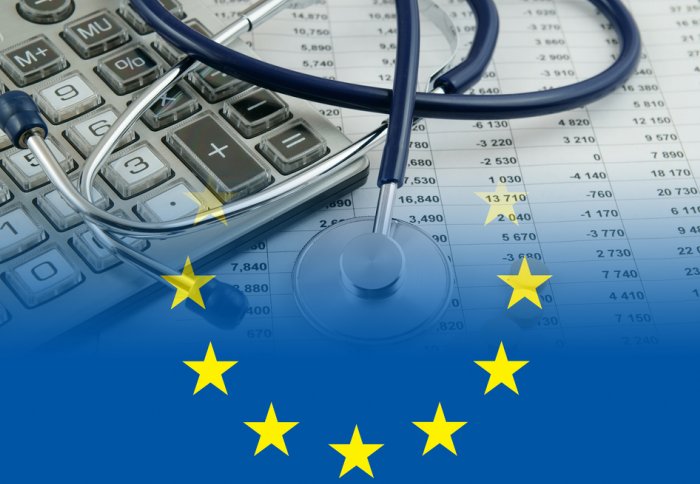Leaving the EU poses 'critical threat' to NHS
by Kate Wighton

Britain's withdrawal from the EU would negatively affect the NHS in a number of ways, a report by academics at Imperial College London has warned.
In the report, called A briefing for the National Health Service on the European Referendum, the authors, from Imperial and LSE, find that withdrawal from the EU is likely to reduce NHS funding, lead to staffing shortages, and hamper Britain’s world-leading health research sector.
The authors conclude that the threat posed by Britain’s potential exit from the EU is as critical as any the NHS has faced in its 68 year history.
The NHS is our most important social institution and it is our duty to champion the evidence
– Professor Ara Darzi
Report author
“We have been struck by the profound vacuum of robust evidence on the role of the EU in our health system” says co-author Professor Elias Mossialos, Chair in Health Policy and Management at Imperial, and Brian Abel-Smith Professor of Health Policy at the London School of Economics. "We have tried to provide clear and balanced answers to the main questions that have arisen during the debate.
“Our conclusion is that, for the NHS, there is no justification for leaving the EU. Claims of a £350 million Brexit saving benefitting the NHS are false, as are fears of EU intervention in health services delivery. Instead, evidence points to benefits for UK health care in terms of medicines policy, human resources and research and development should we remain in the EU.”
Professor Lord Darzi of Denham, Director of the Institute of Global Health Innovation at Imperial added: “The NHS is our most important social institution and it is our duty to champion the evidence. We owe it to our patients, the public and the entire NHS to help make informed decisions when it comes to the vote on June 23rd.”

Professor Ara Darzi
The main conclusions from the briefing are:
- EU migration benefits the NHS in terms of funding and staffing. Most migrants are of working age and contribute more to the NHS through the taxes they pay than taken out of the NHS in services. The challenge for the NHS is to ensure that communities that experience high levels of migration receive more funding. Furthermore, due to NHS reliance on non-British European staff, the service would face a workforce crisis if Britain left the EU.
- Britain leaving the EU is unlikely to lead to an increase in NHS funding. The authors note that once Britain’s rebate and costs of access to European markets is accounted for, the available funds are not the £350 million a week claimed by the Leave campaign but £22 million a week or £1.4 billion a year. Even if diverted to the NHS, this amount would not cover its annual budget deficit. Exiting the EU would also have broader economic consequences for the UK’s economy that may reduce the available NHS funding.
- The EU assists NHS research and development. Departure from the EU would mean that Britain would lose the right to participate in the European Medicines Agency, the EU centralised authorisation system, and lose its influence on policy decisions within the body. Additionally, the UK is the most successful country at winning competitively awarded EU funding for research and development.Leaving the EU would require the UK to make a financial contribution without a role in setting priorities in the research and development agenda.
- Britain’s EU membership is not a threat to publicly commissioned and provided healthcare. EU Article 168 states that the management and delivery of health service provision is the responsibility of each national government. Britain decides the private sector’s role in the NHS independent of the EU.
- The TTIP trade deal will not affect the NHS. National healthcare is not included in the Trans-Atlantic Trade and Investment Partnership (TTIP) trade deal, and the UK government has stated that it has no intention to broaden its scope to include the NHS in the future.
The full report, A briefing for the National Health Service on the European Referendum is available here.
Article text (excluding photos or graphics) © Imperial College London.
Photos and graphics subject to third party copyright used with permission or © Imperial College London.
Reporter
Kate Wighton
Communications Division